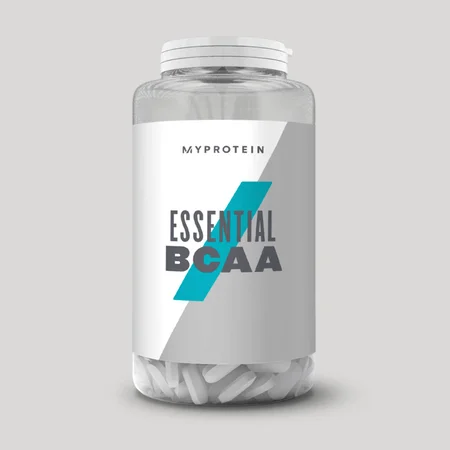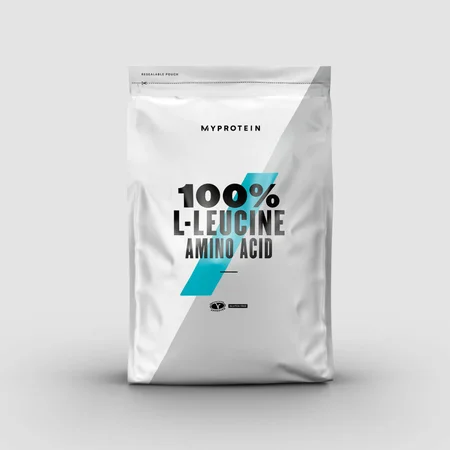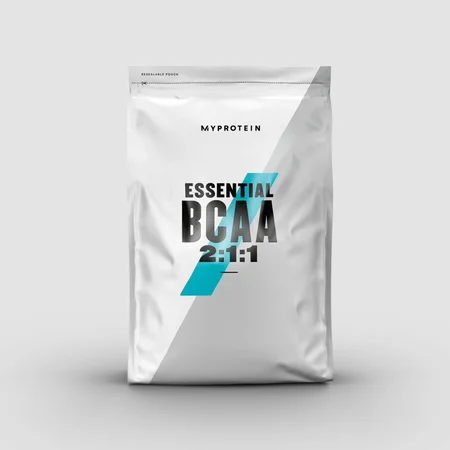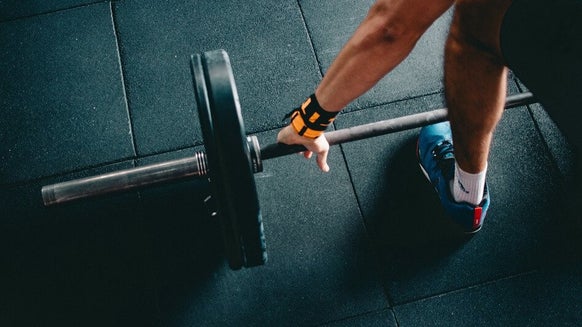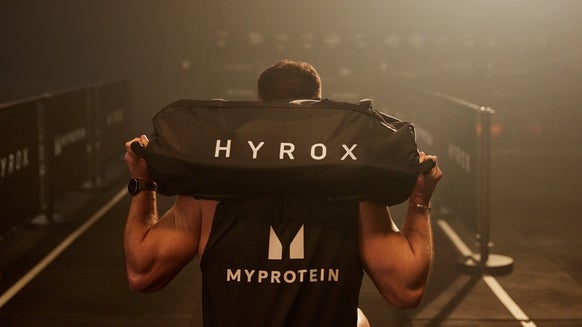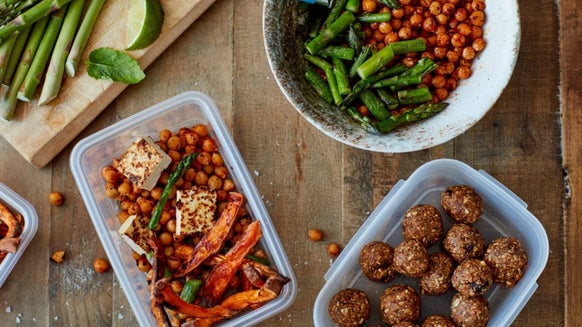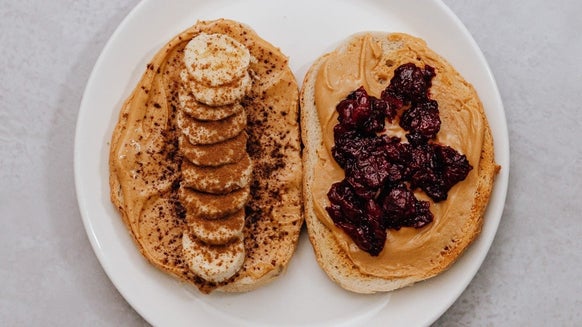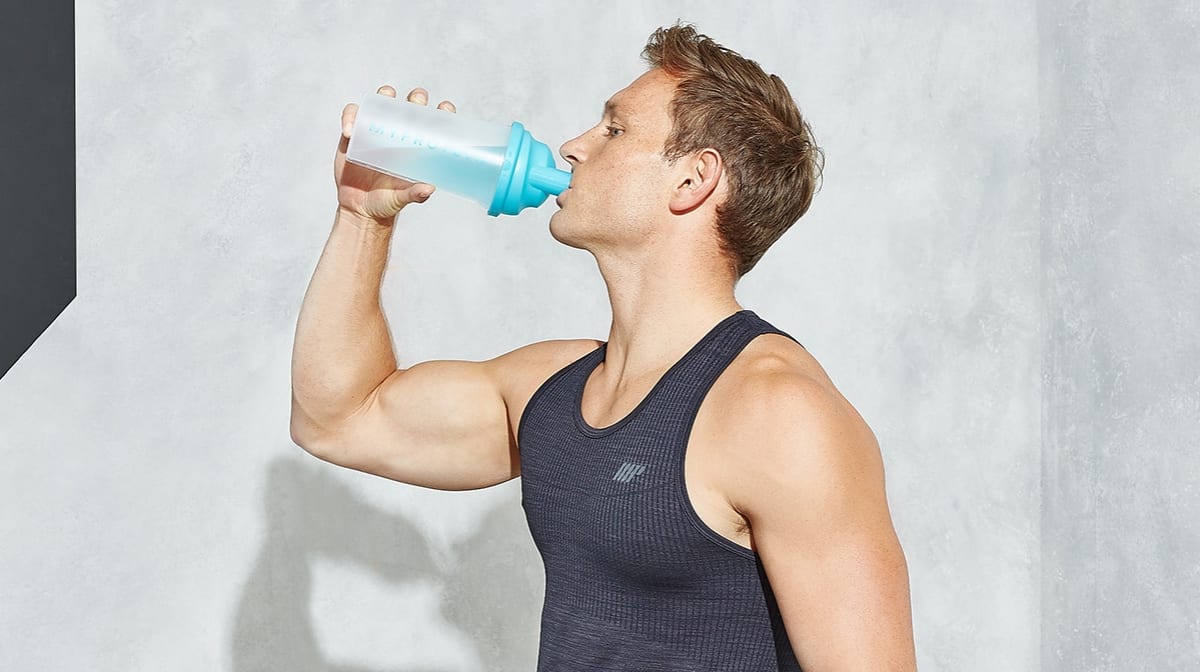
If you're looking to build and retain muscle, then you'll know that protein = power, and amino acids are the compounds in protein that provide this benefit. There's nothing more gutting than failing at a weight you could previously lift — a problem too often encountered by those of us getting lean and losing muscle.
Trying to lose weight means a calorie deficit — which already makes you miserable — and therefore cutting out the calorie-heavy shakes that you would usually take to build muscle. This is where BCAAs brighten the day of any gym goer on the shred, as the low-calorie content and amino acids allow you to retain muscle and still lose fat1. Want to shed a few pounds off your body and add a few to your bench press? BCAAs could be the answer.
Why Should You Take BCAAs?
Studies have determined that three amino acids are the most essential to muscle anabolism (growth) and anti-catabolism (retention)2 . These processes are why BCAAs for cutting and losing weight are so popular, as you won't lose muscle mass while losing fat.
The three essential amino acids in BCAAs — which stands for branched chain amino acids — are leucine, isoleucine, and valine.
Easily the most important, leucine is the main muscle building and sparing amino acid. This is because it stimulates mTOR — a protein that induces muscle protein synthesis in human muscle3. In addition to this, it also has muscle-preserving effects. So, in a fasted state, your body will not use muscle tissue for fuel which is ideal for those using BCAAs for cutting fat while maintaining muscle. This is particularly important when your glycogen stores are empty4.
Isoleucine also has a muscle building and sparing effect, it's not nearly as effective as leucine. Its secondary function involves increasing glucose uptake into the muscles during exercise5. This won’t help anybody that’s doing fasted cardio to burn fat as your body shouldn’t have any stored glucose. It would be beneficial, however, during a lifting session after a meal to increase available energy.
Valine is a bit more of a mystery — it appears to be weaker than both other amino acids for stimulating muscle growth and preventing catabolism6. There hasn’t been a big enough study done on Valine in isolation, so its benefits are yet to be pinpointed.

Who Should Be Taking BCAAs?
From the start, anybody who is in a calorie surplus or is trying to gain weight can take BCAAs, but you guys should hit the shakes as well. In this situation you’ll need a higher calorie intake than BCAAs can offer, but they work great combined with other supplements. If you're a hardgainer needing some help, then check out this introduction to a hardgainer's diet.
For those looking to maintain their physique, it's down to your diet. If you consume enough protein on a daily basis and can maintain your strength and size, there is no need to supplement with BCAAs. If you begin eating at maintenance and your strength or size start to go down, BCAAs could prevent muscle loss.
Finally, those dieting and eating a daily calorie deficit, you’ll be losing muscle whatever you do. Along with a high-protein diet, BCAAs can be an important addition to a cutting routine to prevent as much catabolism as possible.

When to Take It
BCAAs for cutting and losing weight is best taken during times of fasting. This is because your body will use fat and muscle tissue for energy when you’re in a daily calorie deficit and your glycogen stores are empty7. Other times during the day such as after a meal, you shouldn’t have to worry about taking BCAAs. Food will be used for fuel first since it’s easier using blood sugar instead of releasing energy from cells.
A good indicator of when you might want to take some BCAAs is when you’re hungry. This is when some BCAA pills or a shake would be a beneficial bridge until your next meal or workout.
How Much Should You Take?
The normal ratio of BCAAs are usually 2:1:1 of leucine, Isoleucine and Valine respectively. Recently more combinations have come out such as 4:1:1 or 3:1:2, but they have yet to be tested as extensively. A dose of four grams leucine, two grams Isoleucine and Valine is the usual serving size for those using BCAAs for cutting and will keep you going for hours.

BCAA Alternatives
Pure leucine powder may be a better option for some, since it gives you nothing but leucine. It's an effective amino acid for dieting and usually has no fillers. You can have this on its own or add it to your existing supplements to increase the leucine content.
There are also the derivatives of leucine. Scientifically known as ?-hydroxyisocaproic acid or leucic acid, HICA is an alternative to BCAAs and even leucine. It’s a metabolite of leucine, meaning when we metabolize leucine in our body (or synthetically), it gets broken down into HICA and other metabolites. While studies into HICA are less extensive, initial results suggest that it’s for maintaining and sythesizing protein for muscle, but not for increasing strength8.
The other metabolite of leucine — HMB — has been more extensively researched. It's shown to be extremely effective at preventing muscle catabolism. This also shows promise that HICA could have similar, if not better effects9.

Take Home Message
You can take BCAAs in a calorie surplus with a high protein diet —although it may not be necessary — but the price should always be in the back of your mind. Those using BCAAs for cutting and losing weight will see the most benefits.
It’s worth remembering that if you’re not in a daily calorie deficit, then you may want to look at other supplements as well as BCAAs, as they'll provide additional muscle building benefit when combined with other higher-calorie products. For dieters who are trying to lose fat, BCAAs, pure leucine, HICA and HMB are all viable options for periods of fasting so as to prevent muscle loss and promote fat loss instead. Basically, if you're looking to get lean, then BCAAs will be your bestie. If you're a bulking beast, then you might want to give gainer shakes a go.

7 Ross, R., Pedwell, H., & Rissanen, J. (1995). Effects of energy restriction and exercise on skeletal muscle and adipose tissue in women as measured by magnetic resonance imaging. The American journal of clinical nutrition, 61(6), 1179-1185.
